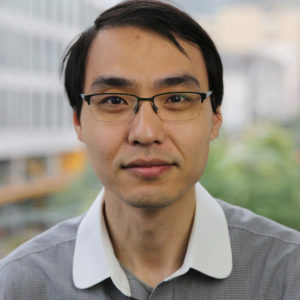Dr. Wei Wei Awarded CARE Grant
 isbscience.org/news/2019/05/17/wei-care-award/
isbscience.org/news/2019/05/17/wei-care-award/The Andy Hill Cancer Research Endowment (CARE) announced ISB Assistant Professor Dr. Wei Wei as a CARE Fund Distinguished Researcher and awarded him $500,000.

“I am extremely honored. This is an unforgettable moment that is much bigger than me — it would not have been possible without the support of my team members, my colleagues, and my institution,” said Wei. “The award recognizes successes of the past and the promise of the future. With the generous support of the CARE fund, I will do everything I can to fight cancer.”
The Wei Lab is developing micro technologies that cultivate new understandings in fundamental cancer biology, as well as new opportunities in translational research in the clinic.
Wei is the second ISB researcher to receive grant funding distinguished researcher funding from The Andy Hill CARE Fund, a public-private partnership that supports cancer research in Washington state. ISB President Dr. Jim Heath was awarded $500,000 in December 2017.
Wei joined ISB in August. Prior to coming to Seattle, he earned his PhD from Caltech and served as a faculty member at UCLA Medical School.
Read a recent Q&A with Wei that delves into his research career, how research might change over the next decade, and his interests and hobbies when not focusing on science.





